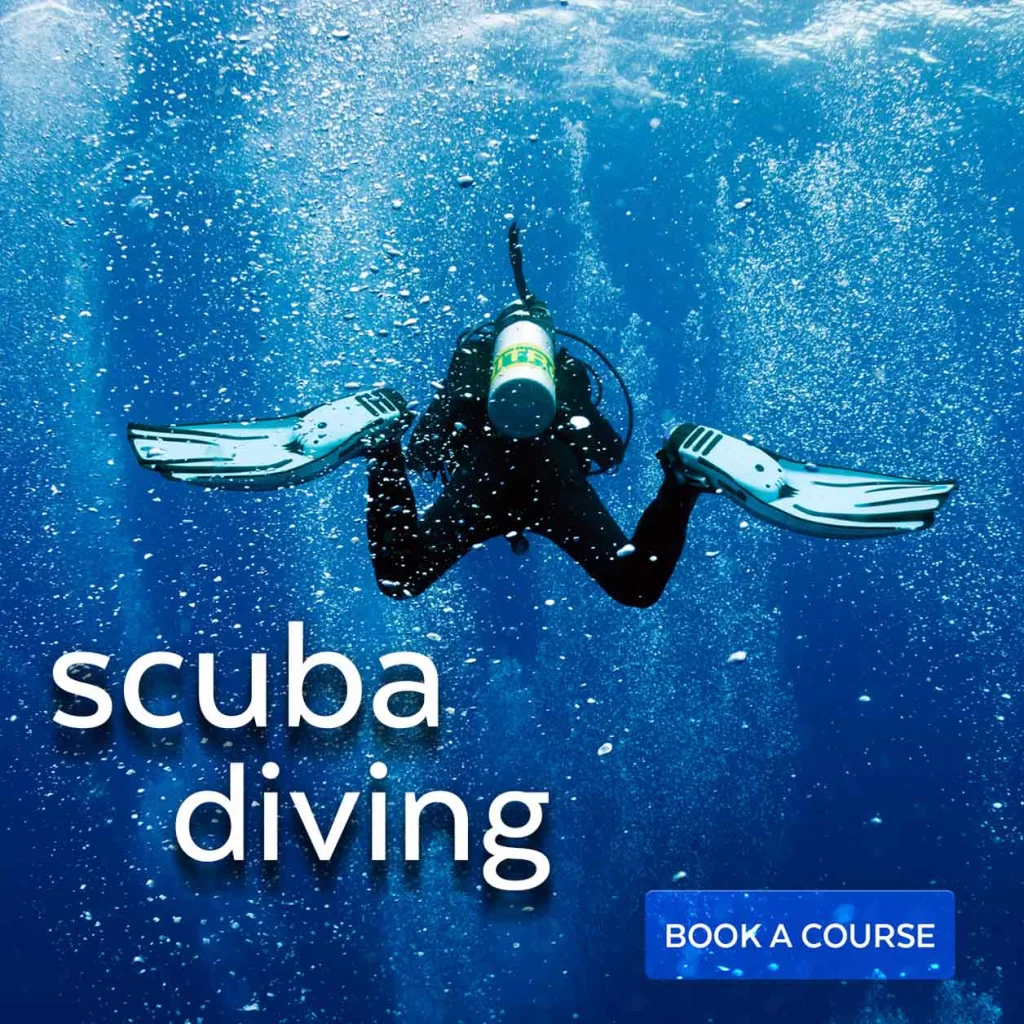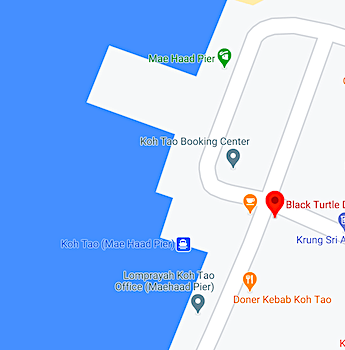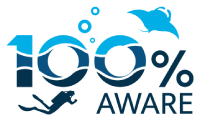Scientific Diver Conservation Internship on Koh Tao
Scientific Diver Marine Conservation Internship in Thailand
Our Scientific Diver Internship program is our Intermediate level marine conservation internship and builds on the skills and knowledge candidates gained from completing the foundational Master Conservationist Internship.
This excellent Internship offers a structured, flexible, educational, and practical program designed to offer students that already possess a foundational knowledge of Reef Ecology and Conservation, a more in-depth academic, practical and educational experience.
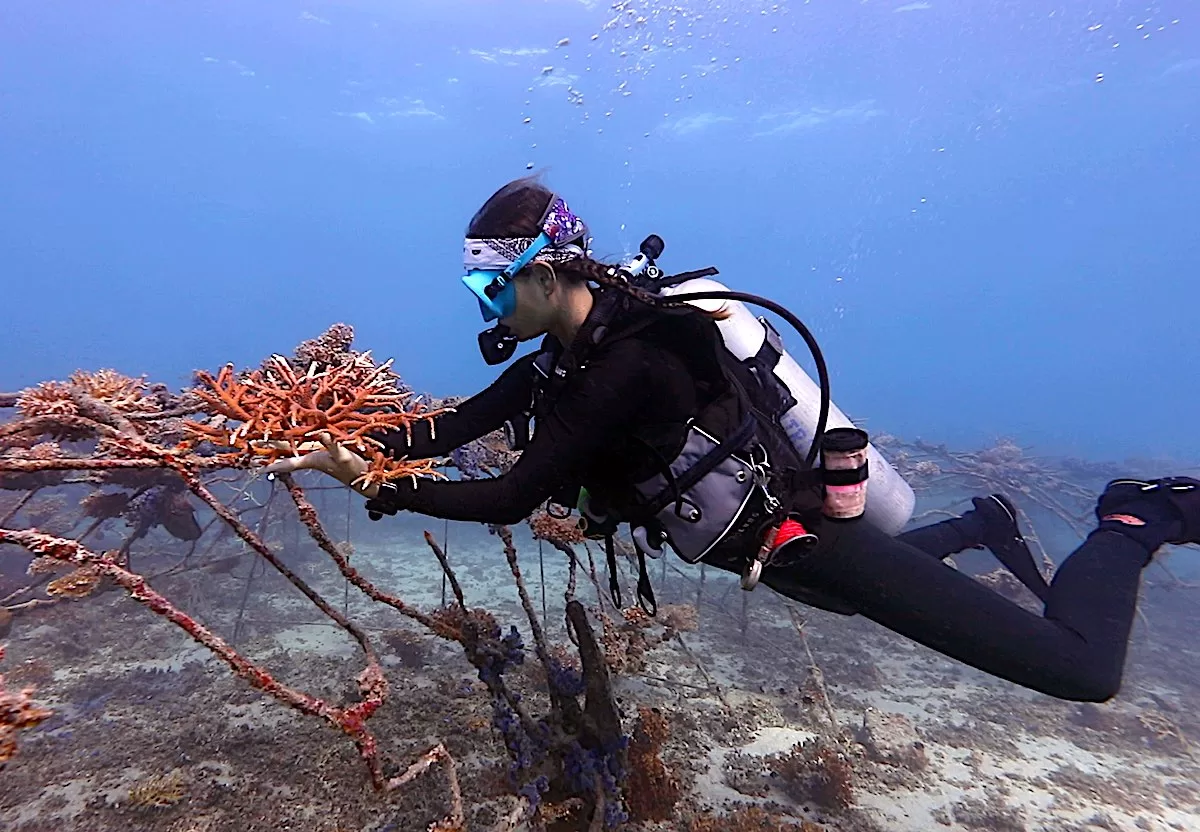
Reef Ecology and Marine Conservation in Thailand
Students who join our Scientific Diver Internship program will enhance and develop their understanding on a variety of subjects at a more detailed and advanced level.
Our Scientific Diver Marine Conservation Internship teaches you to apply a more scientific approach to learning, which involves observation, questions, research, data collection, analysis, conclusions and interpretation.
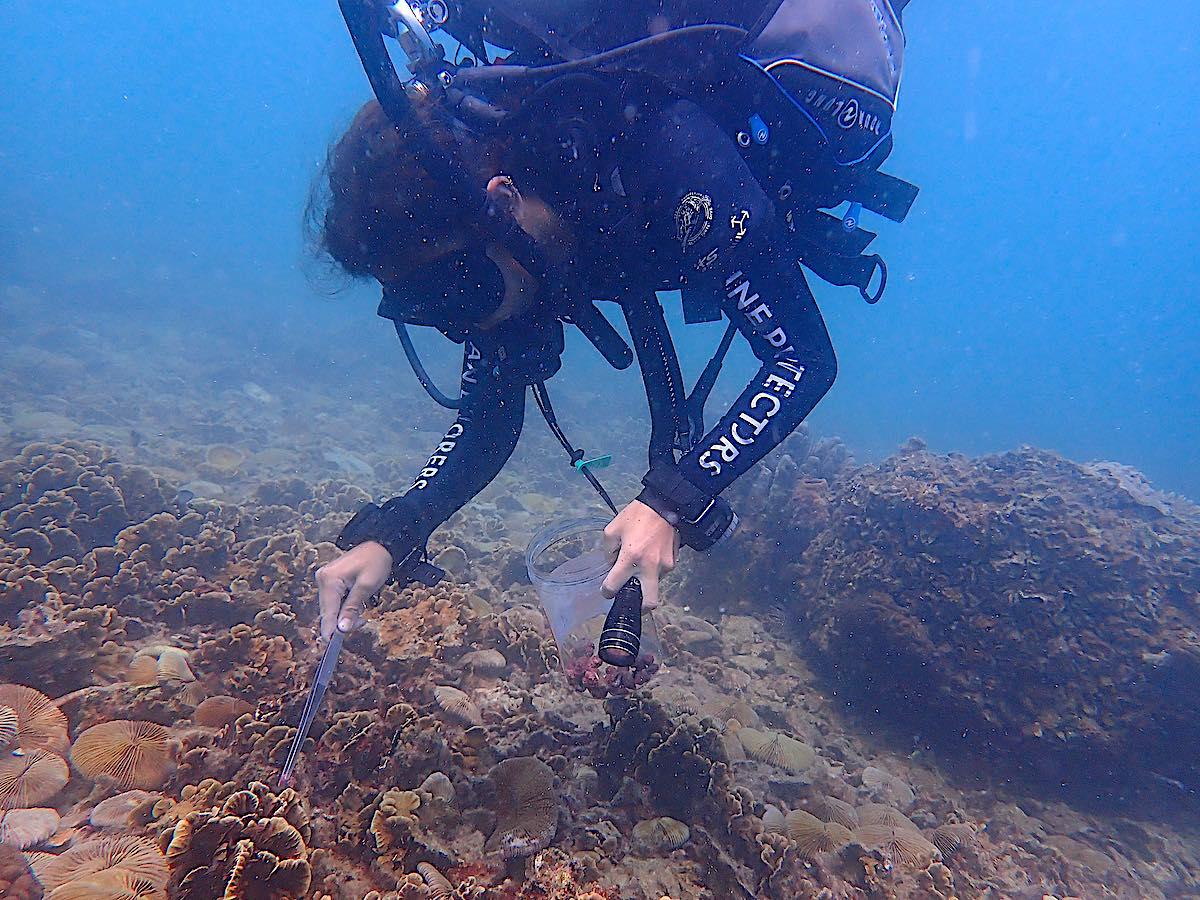
Natural Threats to Coral Reefs
We study the threats that coral reefs face such as climate change, strong waves, high winds and heavy rainfall associated with intense and irregular weather patterns and coral predation, coral diseases and sedimentation.
We will study the importance of marine algae to the coral reef ecosystem and further your knowledge in areas such as coral transplantation, which is one way we can actively restore coral reefs as marine scientists.
Our Scientific Diver Internship follows on from the Master Conservationist Internship and is scheduled over 14 days, and the most popular Intermediate level Marine Conservation and Reef Ecology Internship on Koh Tao.
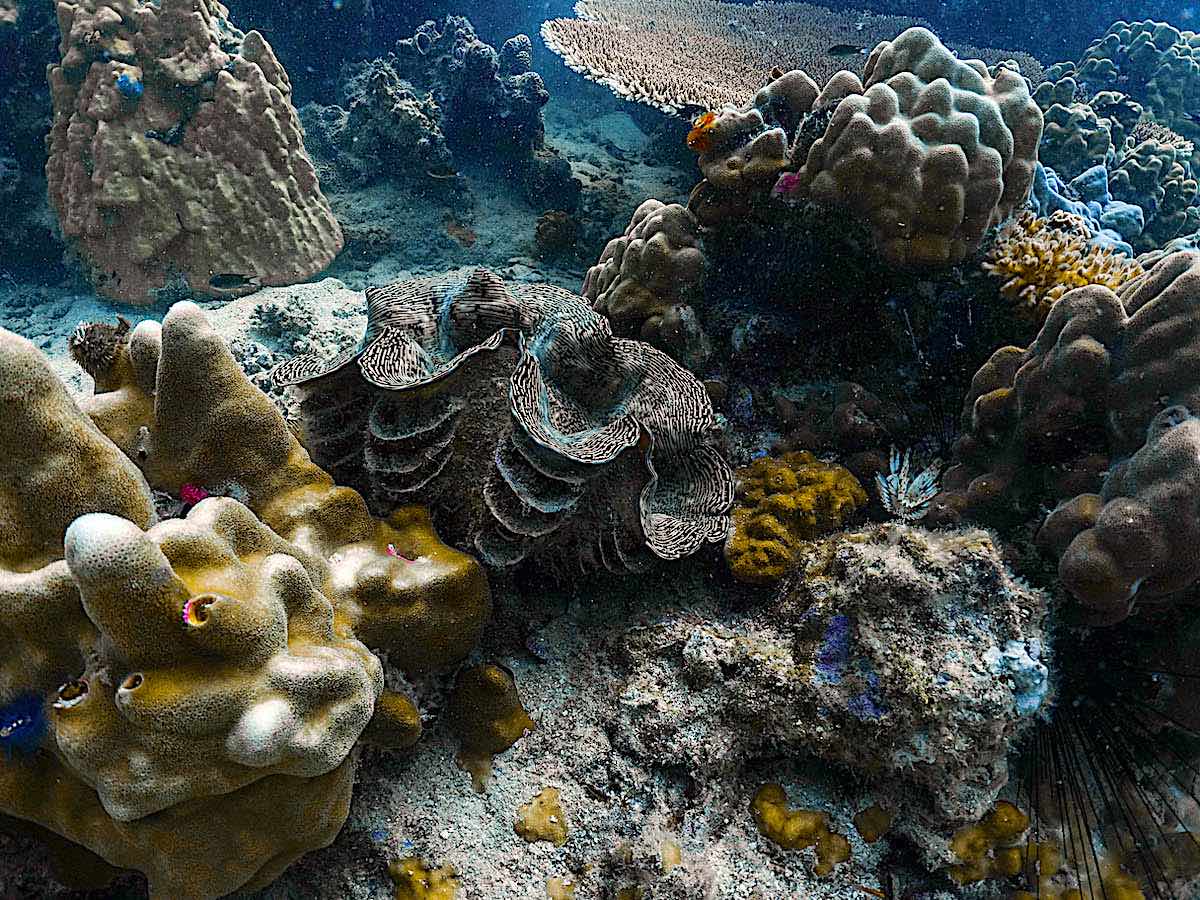
Become a Coral Taxonomist
Building on from the 18 coral genera you learned to identify during the Master Conservationist, there are two more levels of Coral Taxonomy to learn about during the Scientific Diver program, which will teach you to identify another 32 coral genera.
We also look at the diversity of coral growth forms in more detail.
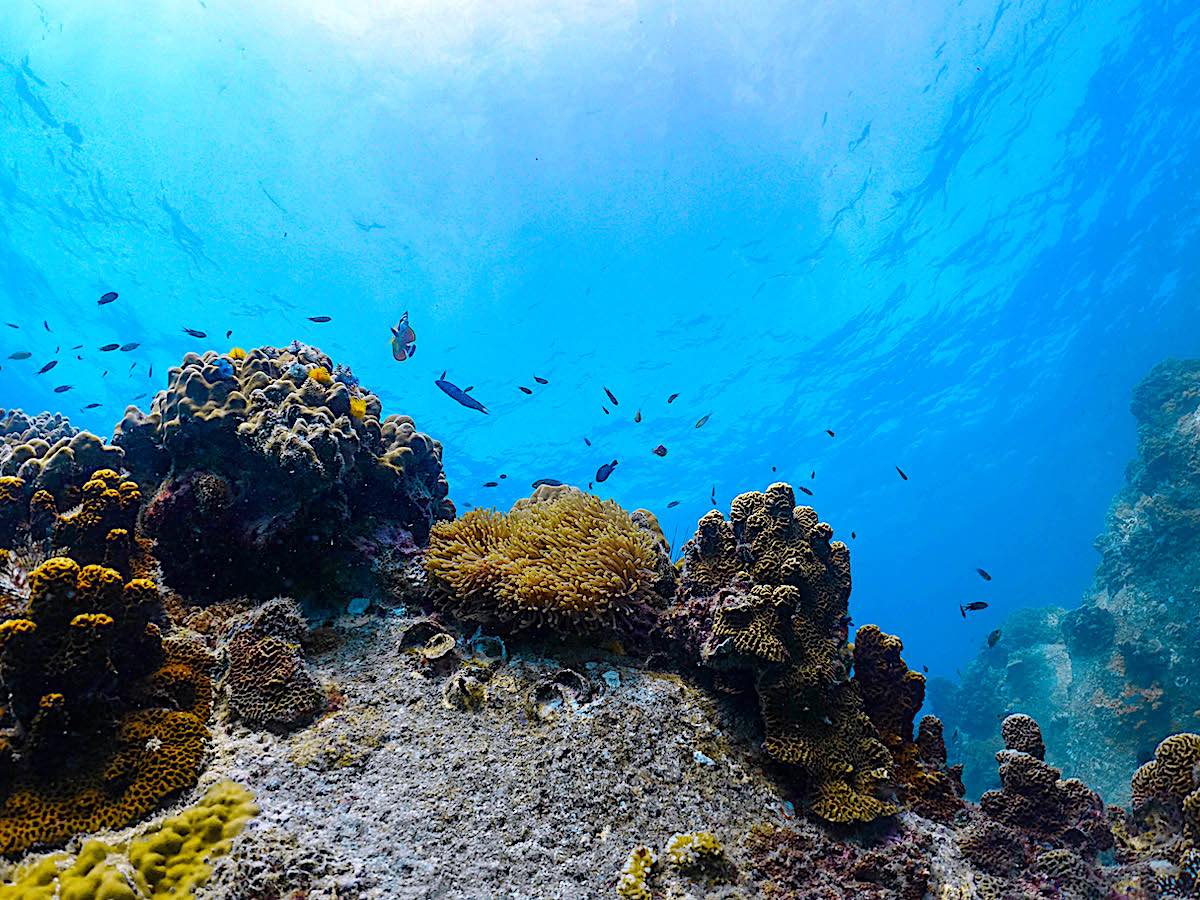
Advanced Ecological Monitoring Program
As you learn more about coral diseases, you will become more proficient in identifying the various diseases corals suffer in and around Koh Tao.
Along with your more in-depth knowledge of coral taxonomy, you can start performing advanced ecological monitoring surveys to record substrate type, fish identification and inverts identification, and also record hard coral genus and any signs of coral disease.
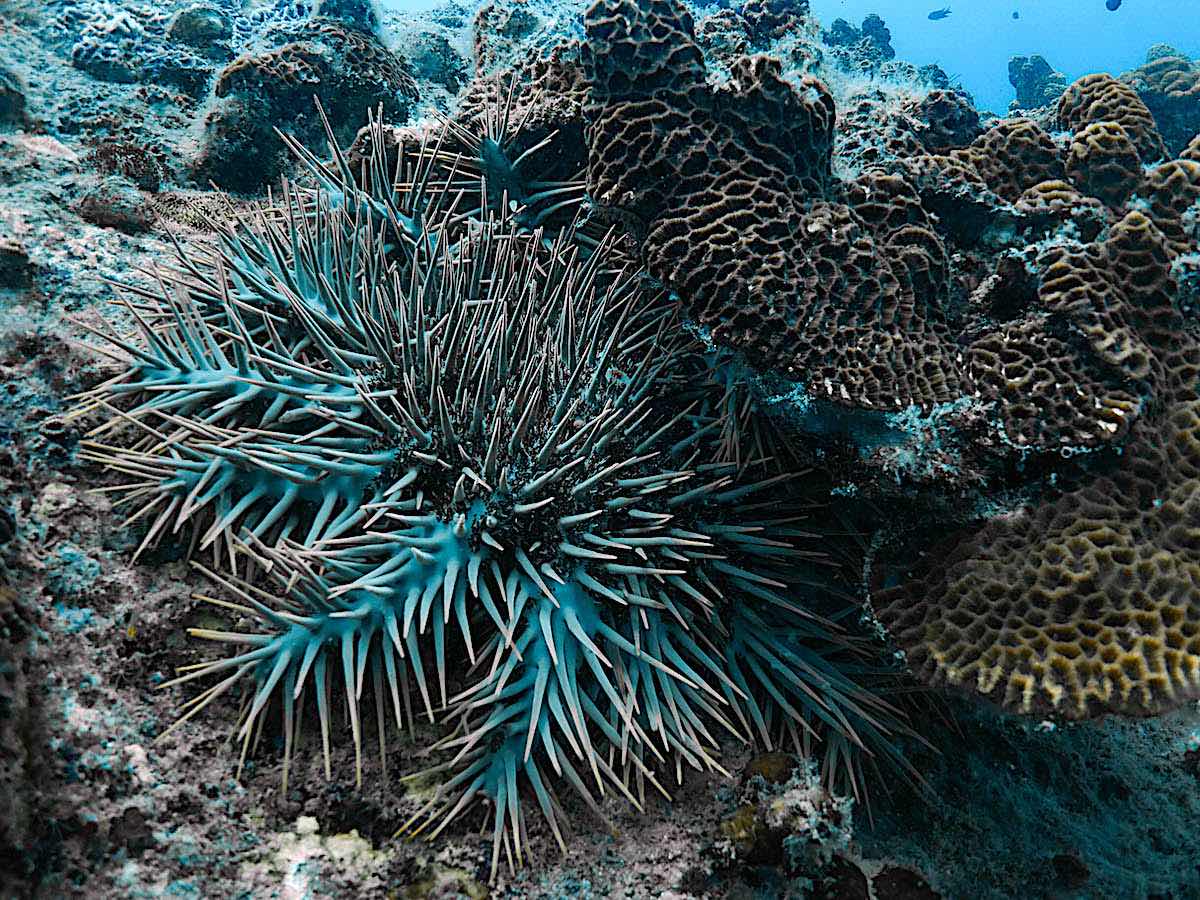
Ecological Significance of Giant Clams
Our Scientific Diver Marine Conservation Diver Internship looks at how Giant Clams contribute to the overall health and functioning of coral reef ecosystems and how important these sessile creatures are, and the threats they face.
Mature Giant Clams play several essential roles within coral reef ecosystems including water-filtering, which involves removing nutrients from the water, and helping to maintain an oligotrophic balance on coral reefs. Oligotrophy is essential on coral reef ecosystems.
Giant clams also contain many of the same Zooxanthellae clades as corals, and are often more resistant to bleaching than corals, and Giant Clams can potentially act as a feedstock for coral recovery from bleaching events.
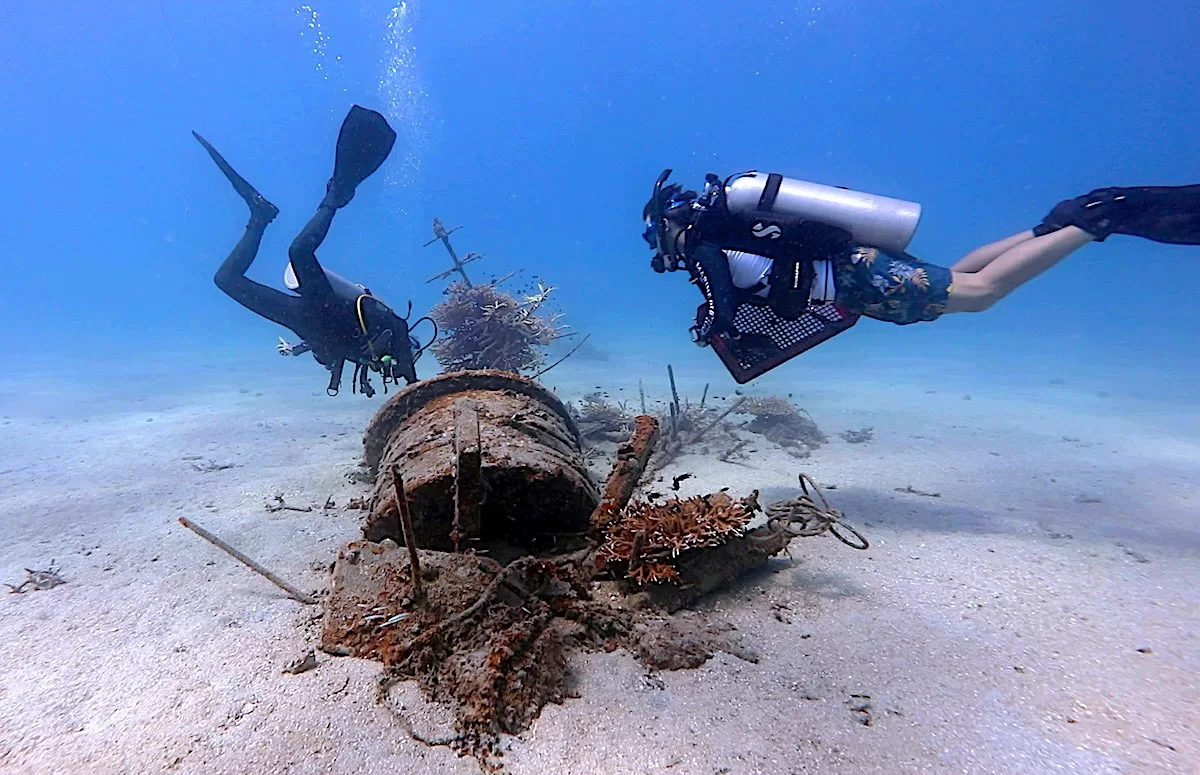
BOOK NOW 39,000 THB
Learn about Shark Ecology & Populations
Our Scientific Diver Conservation Internship looks at threats facing some of the most important species in the oceans worldwide, including sharks.
You will learn about Shark ecology, their incredible sensory system, including Electroreception, their evolutionary history, their importance to the marine ecosystem and the threats facing shark populations around the world.
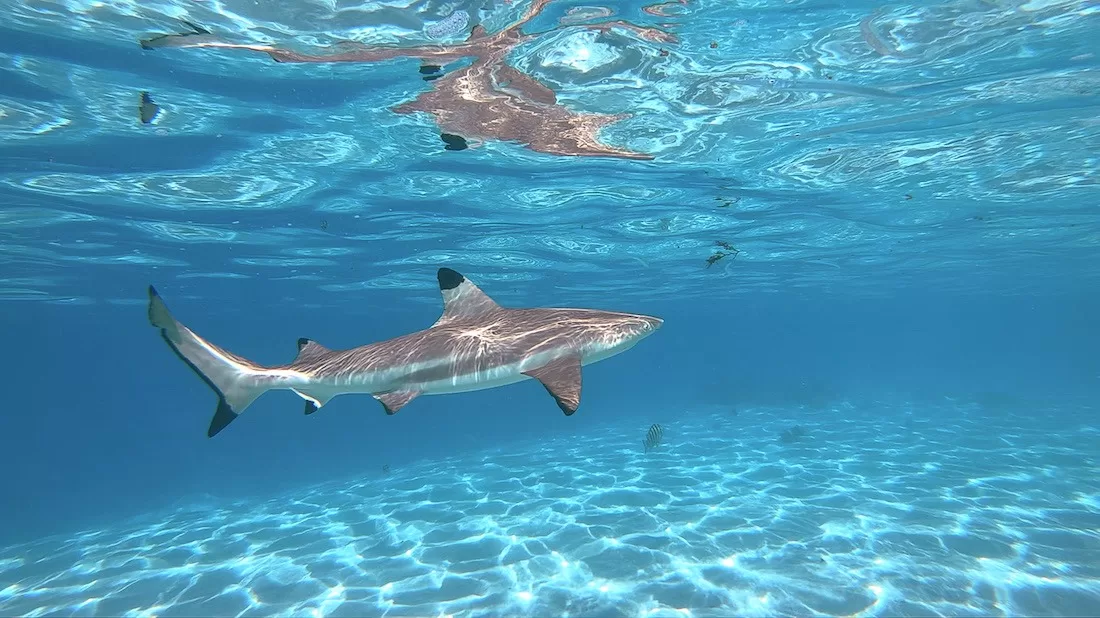
Endangered Ocean & Plight of Sharks
We also learn the techniques used to monitor black tip sharks, the most abundant species of shark in the ocean around Koh Tao.
You learn how we use a snorkeling survey along with photo documentation to identify the sex and estimate the size of the black tip reef shark.
We record data for the Conservation Diver Koh Tao shark database and sharktrust.org.
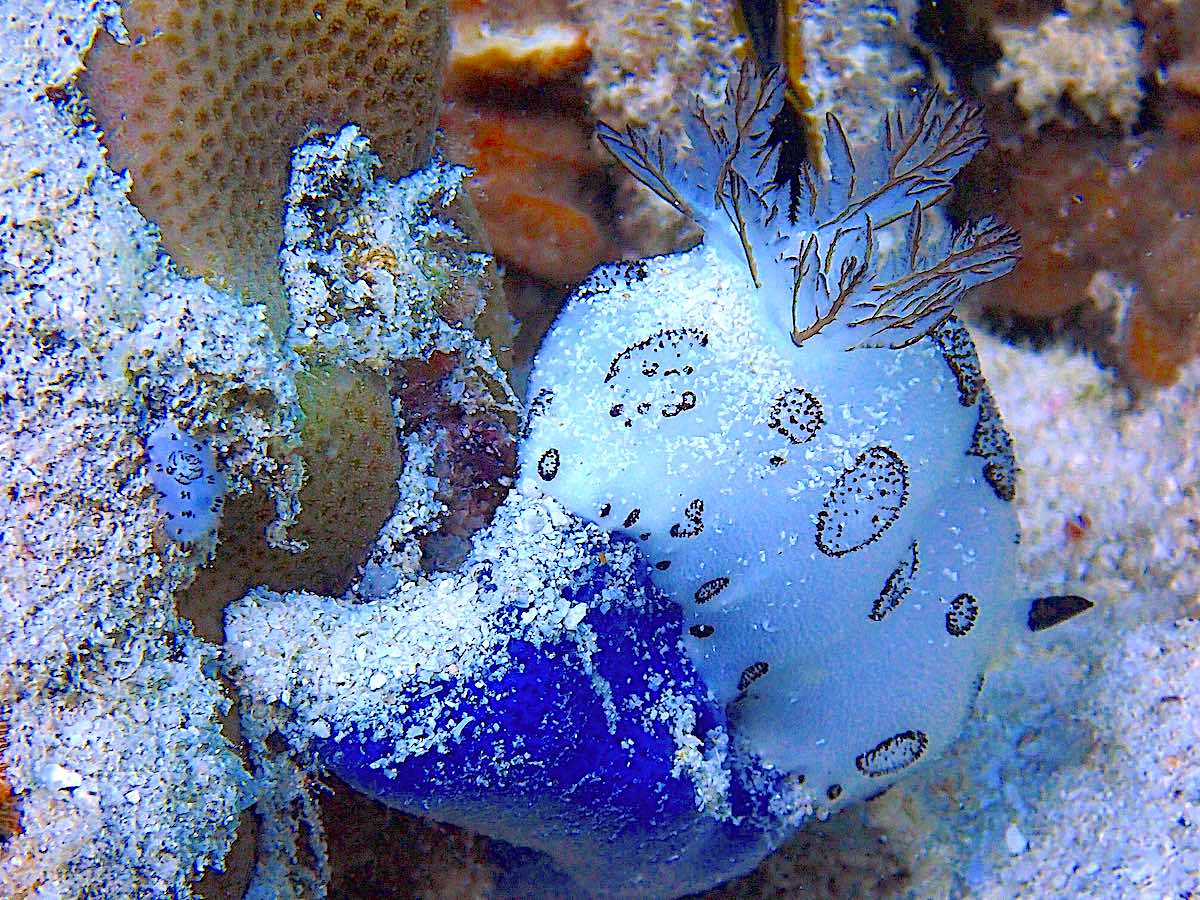
Learn about Sea Slugs & Nudibranch
Sea slugs and Nudibranch are one of the most diverse groups of marine invertebrates, with thousands of species found in various marine habitats worlds wide.
While they may appear small and inconspicuous, their presence contributes to the overall biodiversity of marine ecosystems, playing a vital role in maintaining the ecological balance.
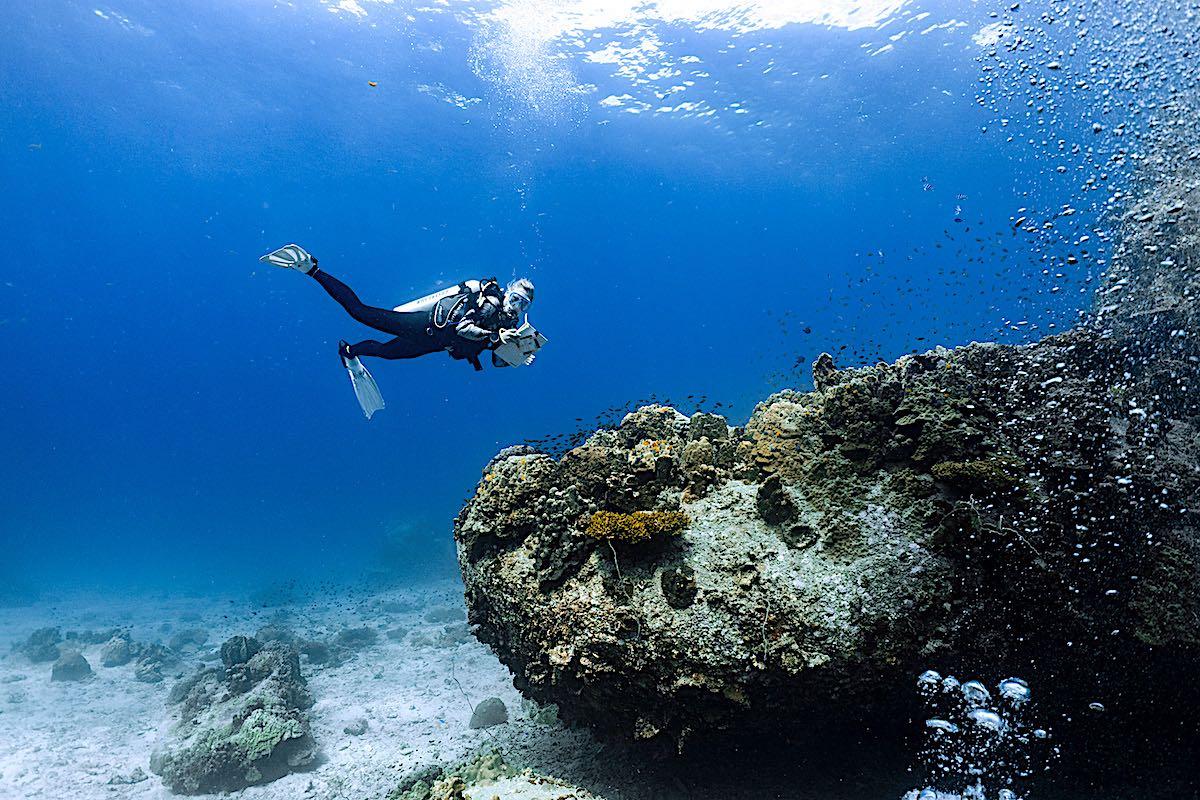
Scientific Diver Internship
They participate in trophic interactions, nutrient cycling, and algal control, and due to their sensitivity to any changes in their environment, they also serve as indicators of ecosystem health. Sea Slugs also help illustrate evolutionary processes, such as shell and organ development and defense mechanisms.
Protecting and conserving sea slug populations are crucial for maintaining the overall balance, functioning and health of marine ecosystems.
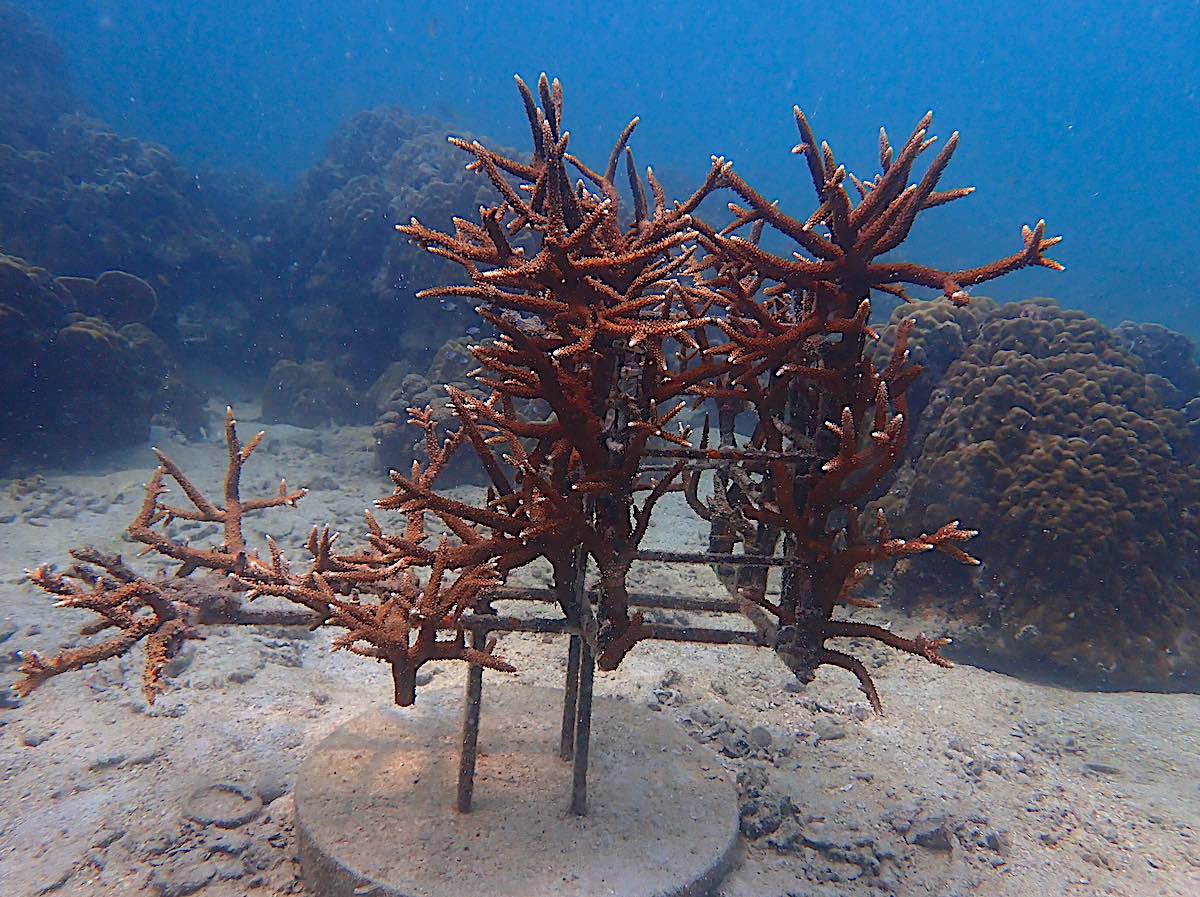
BOOK NOW 39,000 THB
Scientific Diver Marine Conservation Internship in Thailand
Likewise, Seahorses are a unique and diverse group of fish found in coastal and shallow waters worldwide, and their presence contributes to the overall biodiversity of marine ecosystems adding to the richness and complexity of marine life.
Seahorses occupy a specific ecological niche within the food web and they are primarily carnivorous, feeding on small invertebrates like shrimp and planktonic organisms.
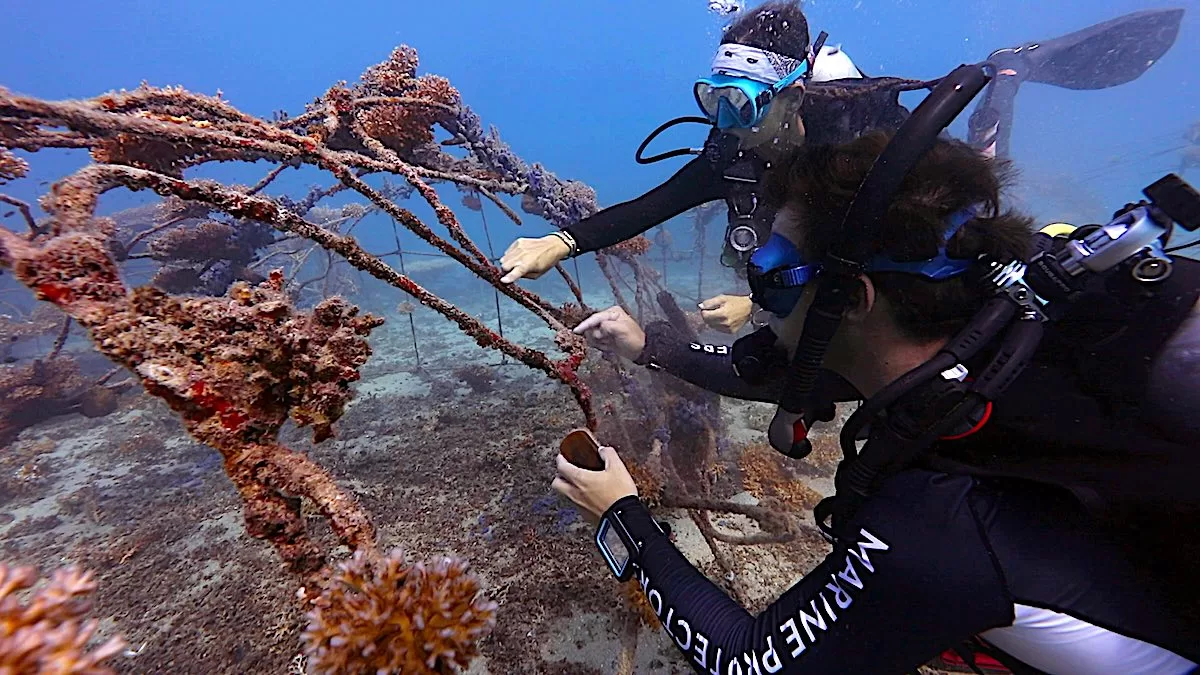
Save our Seahorses, Save our Seas
By consuming these prey items, sea horses help regulate their populations, maintaining a balance in the ecosystem and preventing the dominance of certain species.
During the Scientific Diver Marine Conservation Internship program, you will learn more about both Sea slugs and sea horses and how they help us to accurately record the health of the marine ecosystem.
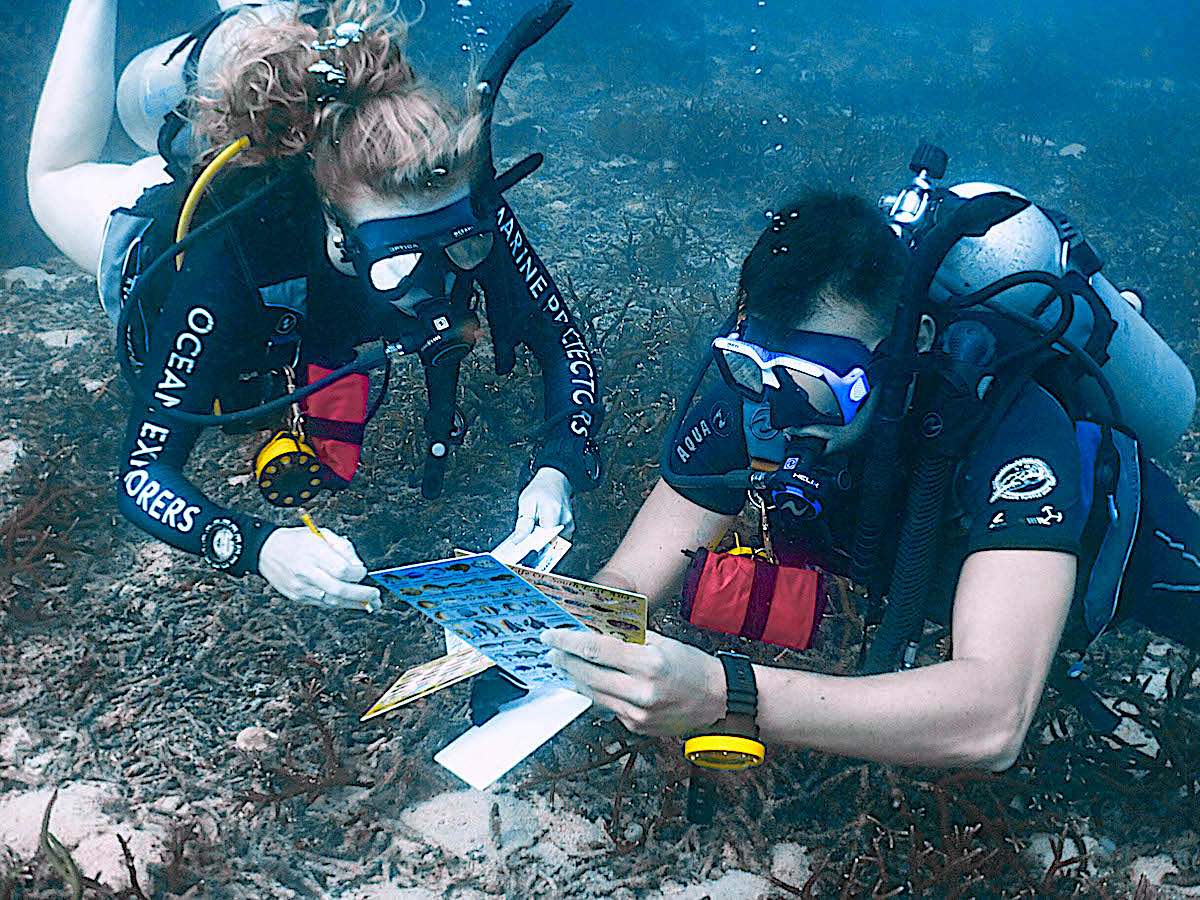
BOOK NOW 39,000 THB
Scientific Diver Marine Conservation Internship Modules
The academic, educational, workshop and practical modules you cover in the Scientific Diver Marine Conservation Internship program:
- Nudibranch & Sea Slug Ecology and Identification
- Seahorse Ecology
- Coral Taxonomist
- Coral Disease Identification
- Macro Algae Identification
- Coral Predation
- Ecological Monitoring Program
- Giant Clam Nurseries
- Coral Transplantation Techniques
- Coral Gardening & Maintenance
- Artificial Structure & deployment
- The Plight of Sharks
- Introduction to Mangroves
Each module has classroom components that include quizzes and exams and there is at least 1 Open Water training session attached to each module.
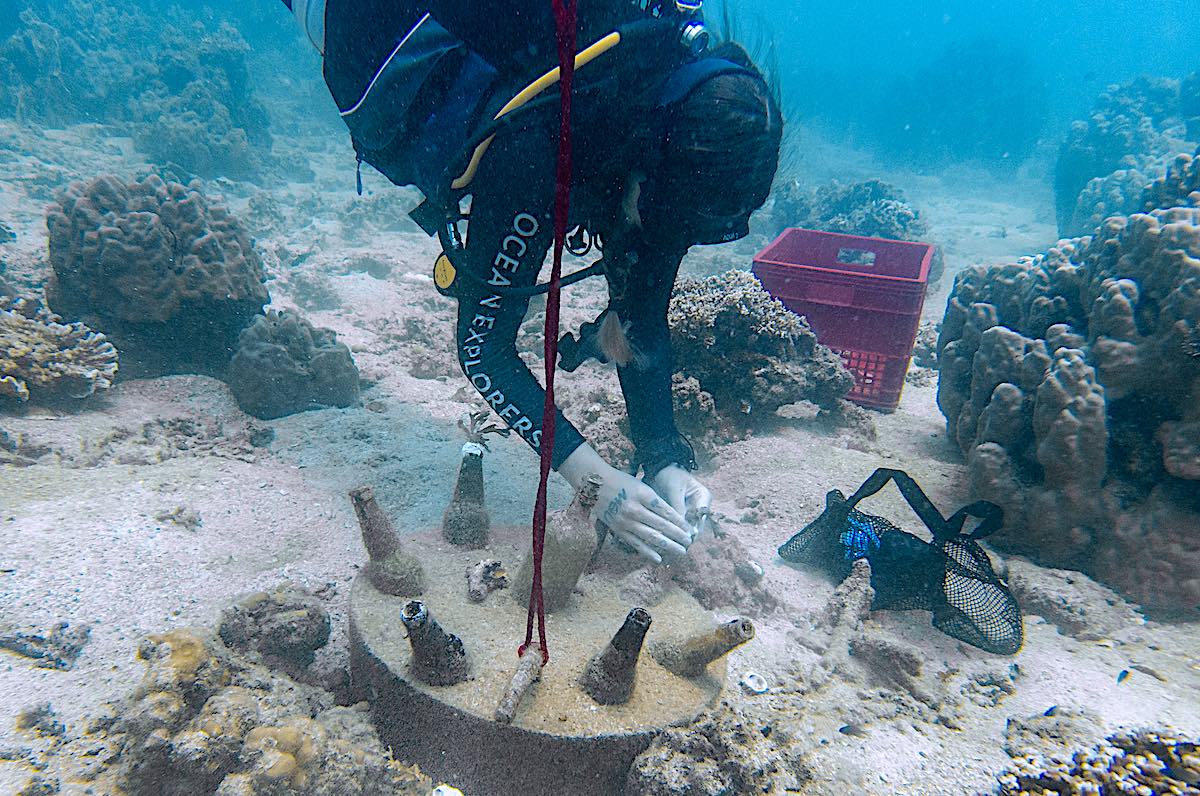
What is included in Scientific Diver Marine Conservation Internship
- 17 training dives on Scuba equipment
- 1 Snorkelling training session
- 7 Conservation Diver certifications including the Ecological Monitoring Program (EMP)
- Black Turtle Scientific Diver certificate of completion
- Rental of full set of premium Aqualung scuba equipment
- FREE use of a Suunto dive computer
- Log Book
- Maximum 4 students per Conservation Diver Instructor
- Black Turtle Dive customer and environmental promise
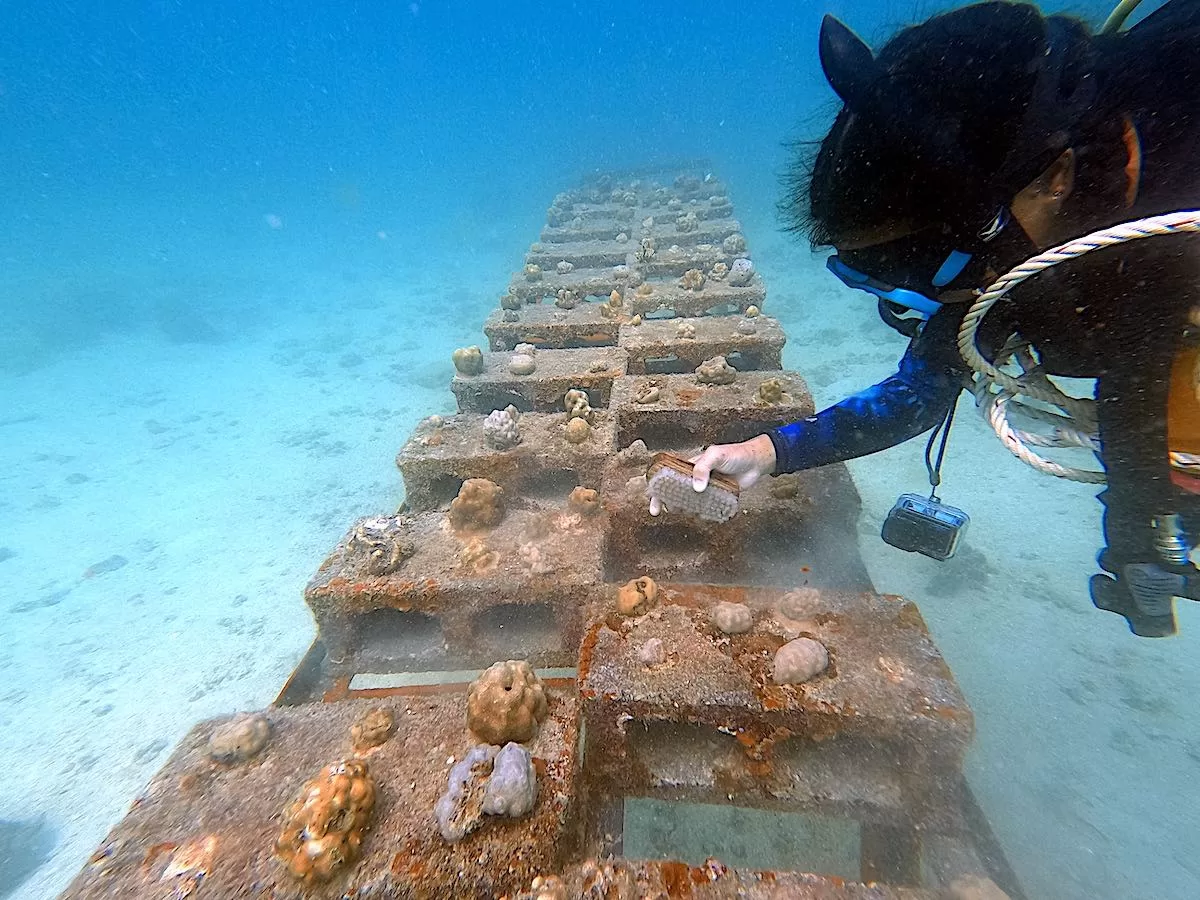
How to Enroll – Scientific Diver Marine Conservation Internship
- 12 years of age
- A certified Advanced Diver
- Successfully completed our Master Conservationist Internship program
- Have recent diving experience – we recommend completing a scuba review if you have not dived for 12 months
- Medically fit to dive
- Demonstrate good diving ability and be proficient with buoyancy and self-awareness during a buoyancy assessment prior to any course specific component that requires you to dive in close proximity to coral reefs
- Have an interest in marine conservation and scuba diving
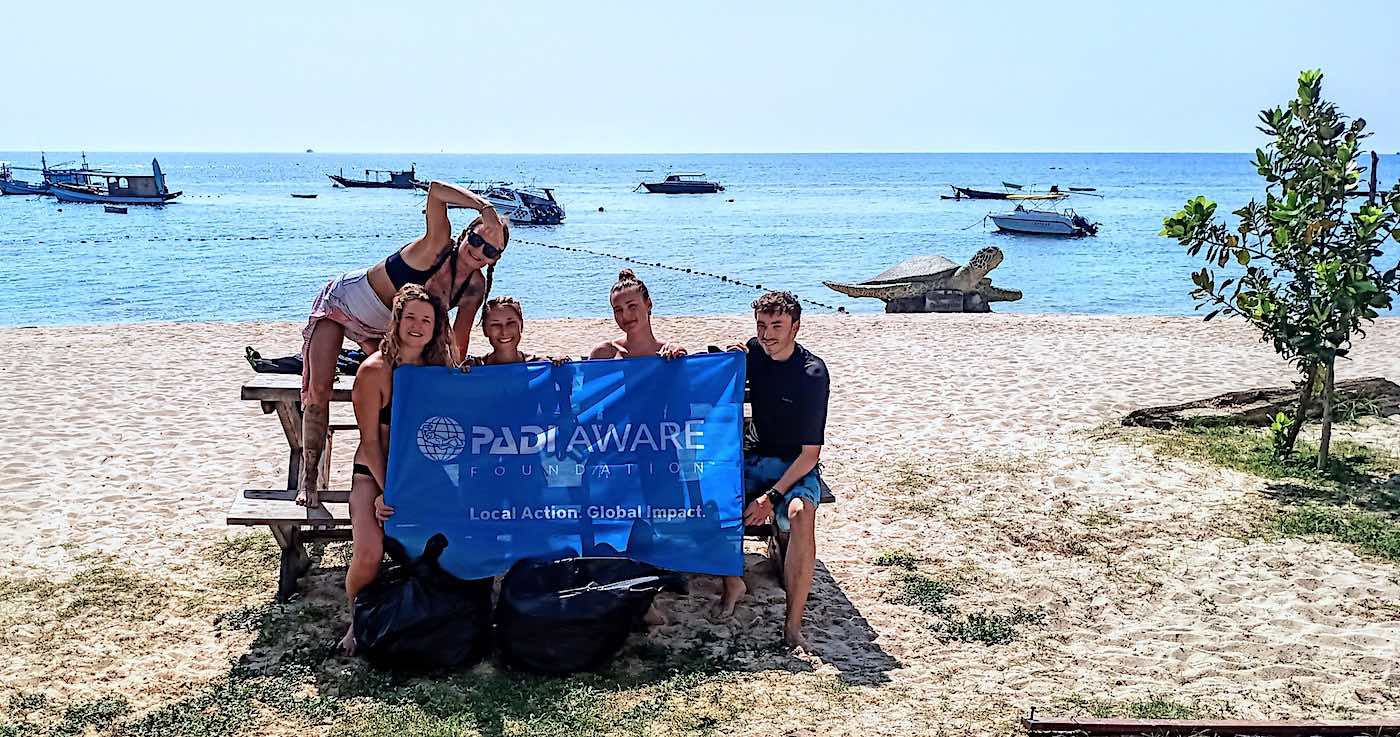
BOOK NOW 39,000 THB
Scientific Diver Marine Conservation Internship Information
Our 14-day Scientific Diver Internship program is designed to follow on from the Foundational Master Conservationist Internship, and the Scientific Diver program introduces Intermediate level knowledge and skills.
The Scientific Diver Internship is student centered and objective driven, and students need to be attentive, focused and prepared to commit to the program timeframe.
We do understand that itineraries and travel plans can change without notice, so we offer flexibility and can reschedule modules over a period of time based on availability in our schedule and the needs of each candidate.
Each module is designed to increase your awareness on the subject plus educate you on the significance and importance of each subject and how they relate to each other. Knowledge development is introduced to support the in-water workshops, observational and scientific training dives.
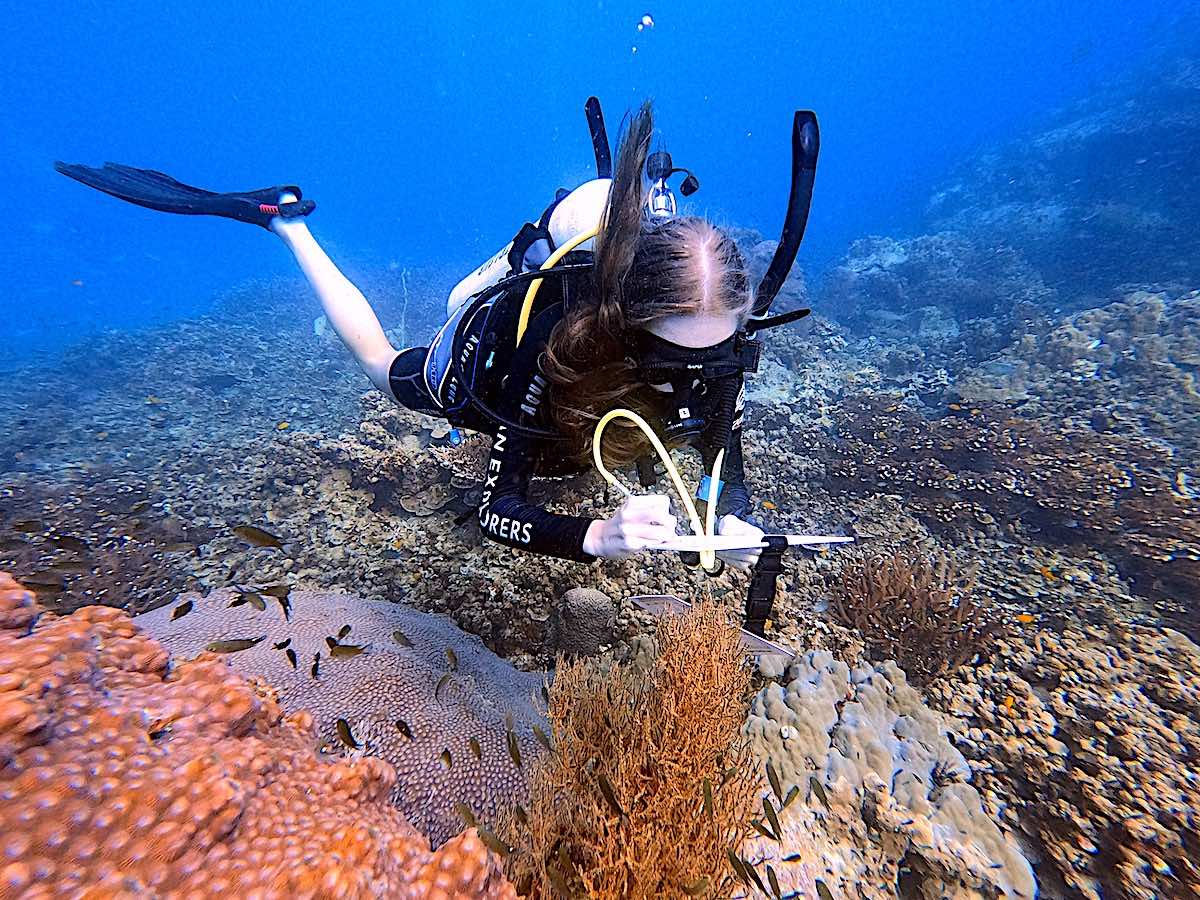
Coral Restoration and Artificial Dive Sites on Koh Tao
As one of the founding partners of perhaps the most successful artificial dive site on Koh Tao – Junkyard Reef, our conservation team has extensive knowledge of the roles these types of dive sites have in alleviating pressure on local natural coral reefs.
Junkyard Reef was first conceptualized and established in 2006 with the deployment of its first structure, and over the following years partners Nathan Cook and Matt Bolton and a team of volunteers began the process of expanding the site.
Donations from local businesses enabled the team to expand Junkyard Reef using a combination of steel rebar welded structures and unused equipment, and soon Junkyard Reef began attracting a wide variety of marine life in search of a new home.
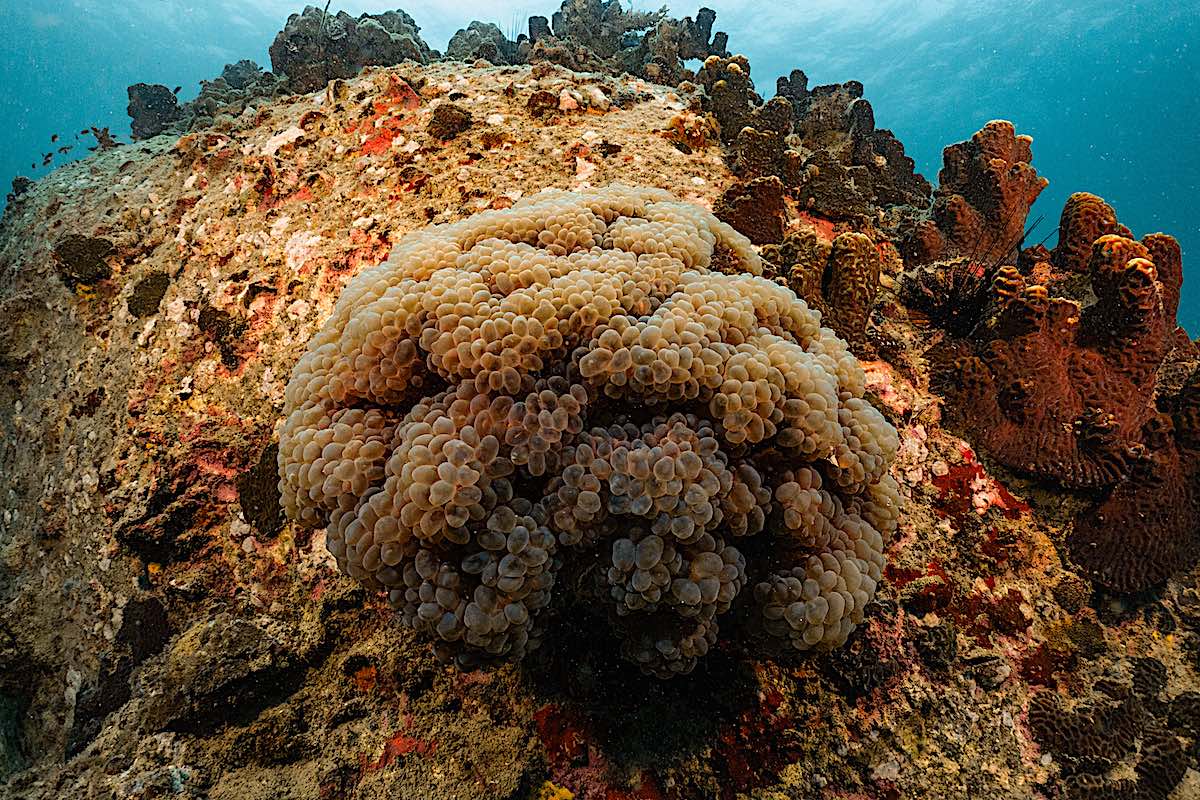
Junkyard Reef, Koh Tao
Over the years Junkyard Reef has benefited from working with several Thai based Universities and the DMCR (Department of Marine & Coastal Resources).
Projects such as the establishment of coral nurseries and the introduction of more Giant Clams to the site, and welded structures, 3D printed structures and underwater art installations.
Our current team at Black Turtle Dive, managing the Junkyard Reef project are working closely with the DMCR to ensure new initiatives and expansion plans are in accordance with the stringent new regulations established by the DMCR.
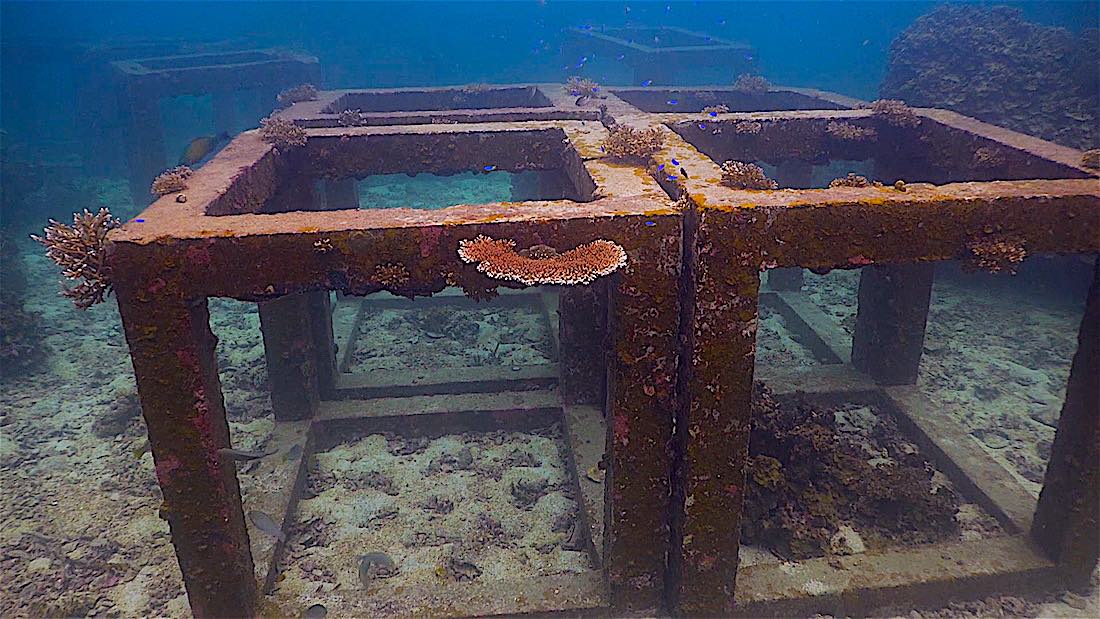
Flourishing Artificial Dive Site
Junkyard Reef is now a flourishing artificial dive site, visited on a daily basis by dive operators from around Koh Tao, which helps lower the stress on natural dive sites, and helps to educate divers on the value of marine conservation.
Some of the practical sessions during our Scientific Diver Conservation Internship will be conducted on Junkyard Reef to ensure our students can benefit educationally from this amazing local voluntary project.
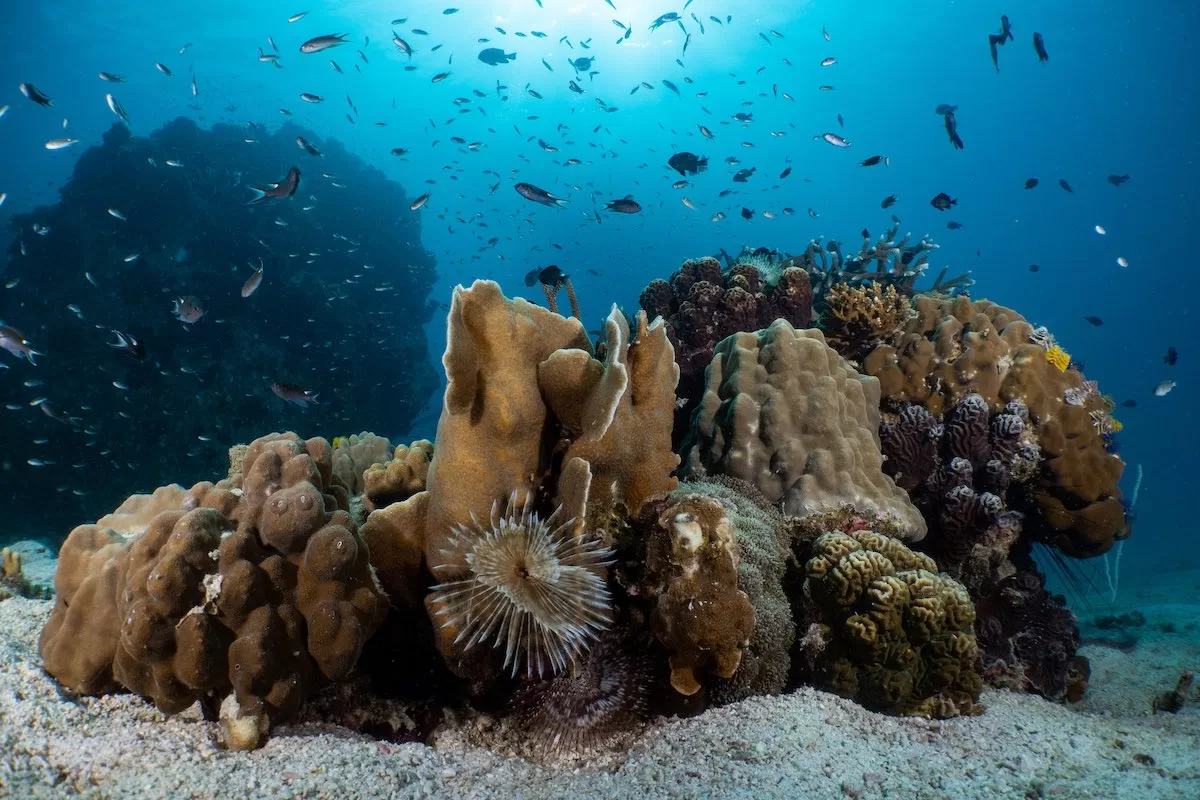
BOOK NOW 39,000 THB
Subjects Covered in Scientific Diver Marine Conservation Internship
- Conservation Diver Nudibranch & Sea Slug Ecology and Identification course
- Muck Dive x 2
- EMP dives – Fish, Inverts, Substrate
- Coral Taxonomist Progression – Level 2 – Presentation
- Coral Taxonomy Dive – Level 2
- Coral Taxonomist Progression – Level 3 – Presentation
- Coral Taxonomy Dive – Level 3
- Conservation Diver Coral Diseases & Compromised Health course
- Coral Disease Safari Dive
- EMP Disease monitoring dives x 2
- Conservation Diver EMP Marine Plants: Macro Algae course
- EMP Macro Algae dive
- Conservation Diver Shark Ecology & Population Studies course
- Snorkeling session with Black Tip Sharks
- Conservation Diver Coral Predators: Population Monitoring and Management course
- Coral Predation dive
- Conservation Diver Giant Clam Nurseries and Population Studies course
- Giant Clam dive
- Conservation Diver Seahorse Ecology and Monitoring course
- Fluorescent Night diving presentation
- Fluorescent Night Dive
- Construction of structure
- Deployment Dive
- Coral Transplant dive
- Mangrove Reforestation presentation
- Water quality testing lecture and workshop
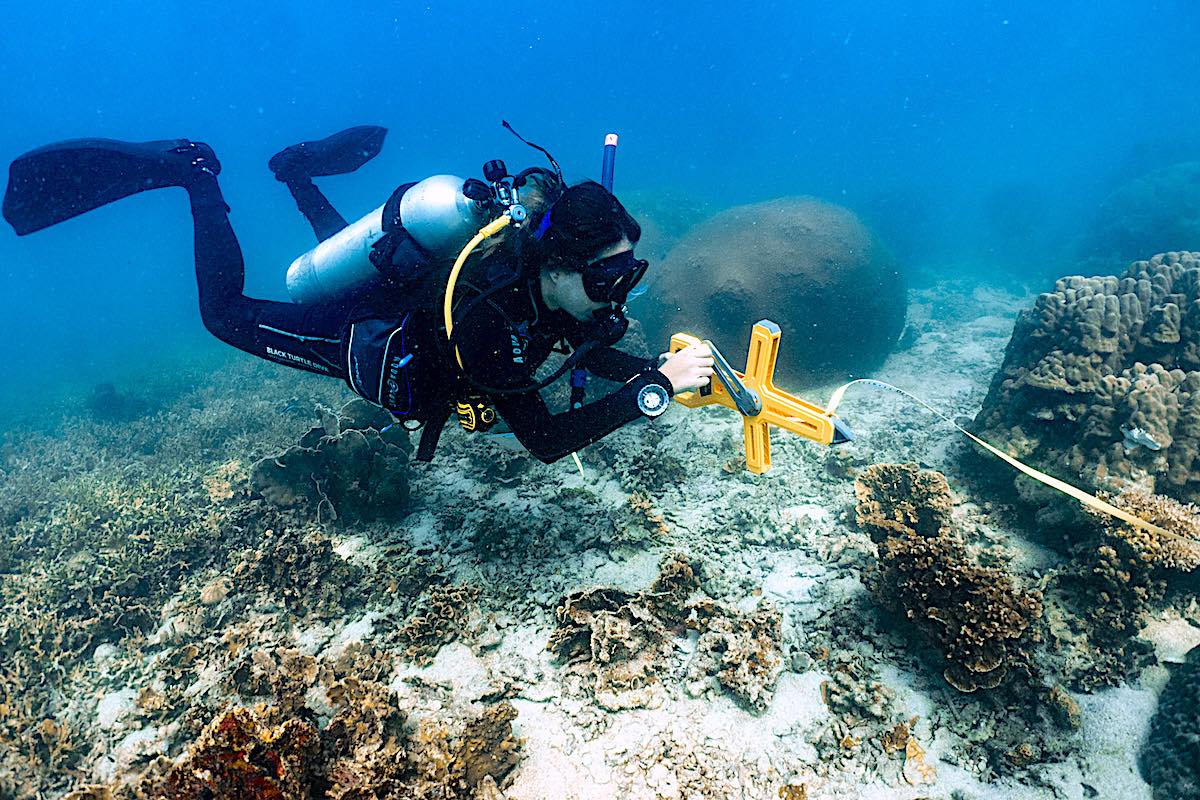
What you learn in Scientific Diver Marine Conservation Internship
- You will understand how predation, competition, and parasitism play a role in the structure and population dynamics of coral reefs
- You will learn, and be proficient in various survey techniques used by reef managers to monitor the health of coral reef ecosystems
- Be able to identify various common coral disease of the region
- You will be familiar with, and able to identify common causes of coral mortality or compromised health states
- Understand the role coral predators play in the ecosystem
- Understand current theory on population dynamics of coral predators in stressed reef ecosystems
- Learn about the root causes of coral predator population outbreaks
- Understand the life-history and reproductive strategies of organisms such as Drupella Snails and Crown of Thorns Starfish
- Learn how to safely and effectively manage populations of coral predators
- Practice assessing coral predator abundance and managing populations
- Understand the role of marine plants in the carbon cycle
- Be familiar with the anatomy and morphology of different types of marine plant and micro-organisms in particular, the diagnostic features used in identification
- Understand the taxonomic system and organization for classifying marine plants and micro-organisms
- Learn the techniques required to monitor and record data on marine plant abundance, coverage and biodiversity
- Understand the importance of sharks in the marine ecosystem, global and local threats to shark populations, and shark identification.
- Learn how to survey for sharks and the various methods available to estimate abundance and diversity.
- Practice surveying for sharks while snorkeling or diving and record data on the sharks observed
- Know how to enter data into the Conservation Diver database and also partners such as SharkTrust.org and the e-Shark Project
- Learn about seahorse ecology and identification and understand the global and local threats to seahorse populations
- Learn the diagnostic features for identifying seahorses and be able to identify the most common local species of seahorses
- Know how to survey for seahorses using the roving diver and transect survey methods Practice a seahorse survey completing at least two of the main tasks (surveying along the line, controlling the GPS raft, keeping track of dive activity timing)
- Be familiar with the iSeahorse.org website and how to enter sightings data into the global database
- Be able to differentiate between different types of sea slugs using anatomical differences
- Be familiar with the hierarchical structure of taxonomy (phyla to species).
- Learn about the differences between morphological and molecular identification for marine invertebrates.
- Understand the ecological and economic role of sea slugs globally
- Understand the importance, ecology, and threats to giant clam populations locally and around the globe
- Learn techniques to survey and monitor local giant clam populations
- Learn techniques involving the use and maintenance of in-sea giant clam nurseries
- Understand the importance of fluorescence for underwater ecosystems
- Understand the role mangroves play in a coastal ecosystem
- Learn about the mangrove coverage in the local region and the threats they are facing
- Understand the biological features of mangrove forests and zonation
- Understand the biota within a mangrove forest
- Understand the vital functions of a mangrove forest and the cause/effects of the threats they are facing
- Understand how to stop mangrove destruction and what active steps are required for reforestation
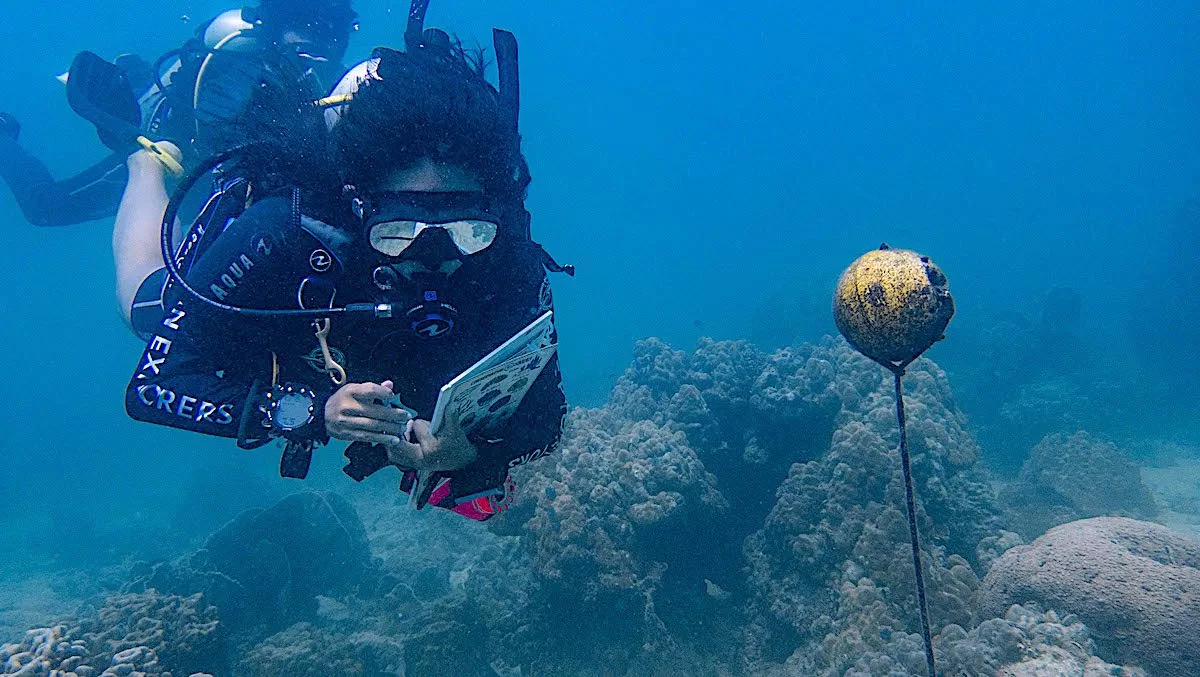
BOOK NOW 39,000 THB
Scientific Diver Marine Conservation Internship Schedule
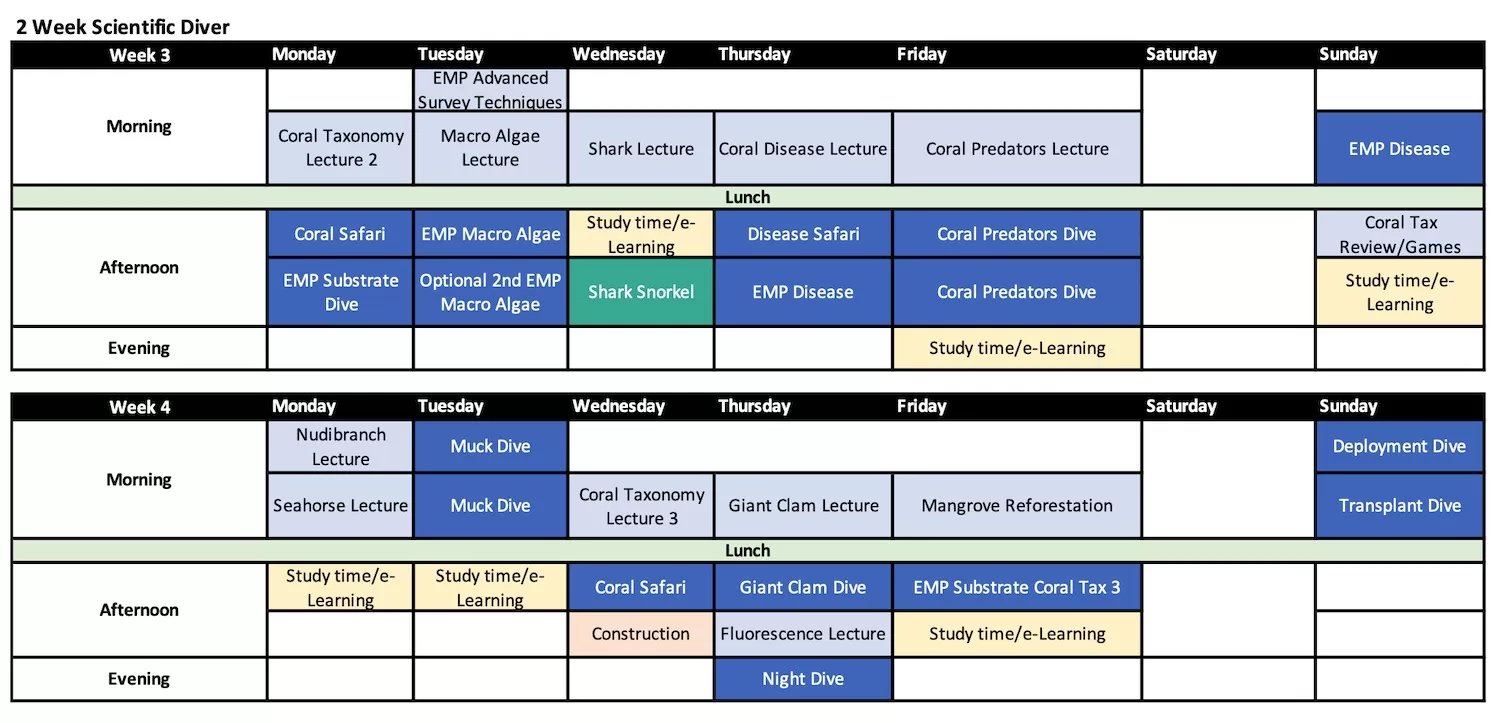
Scientific Diver Marine Conservation Internship Start Dates
We start the Scientific Diver Internship Program on the 1st and 15th of every month. If these dates are not compatible with your travel itinerary, then please email us with details of the dates you are available on Koh Tao.
To enroll on the Scientific Diver Marine Conservation Internship, you first need to have successfully completed the Foundational Master Conservationist Internship Program.
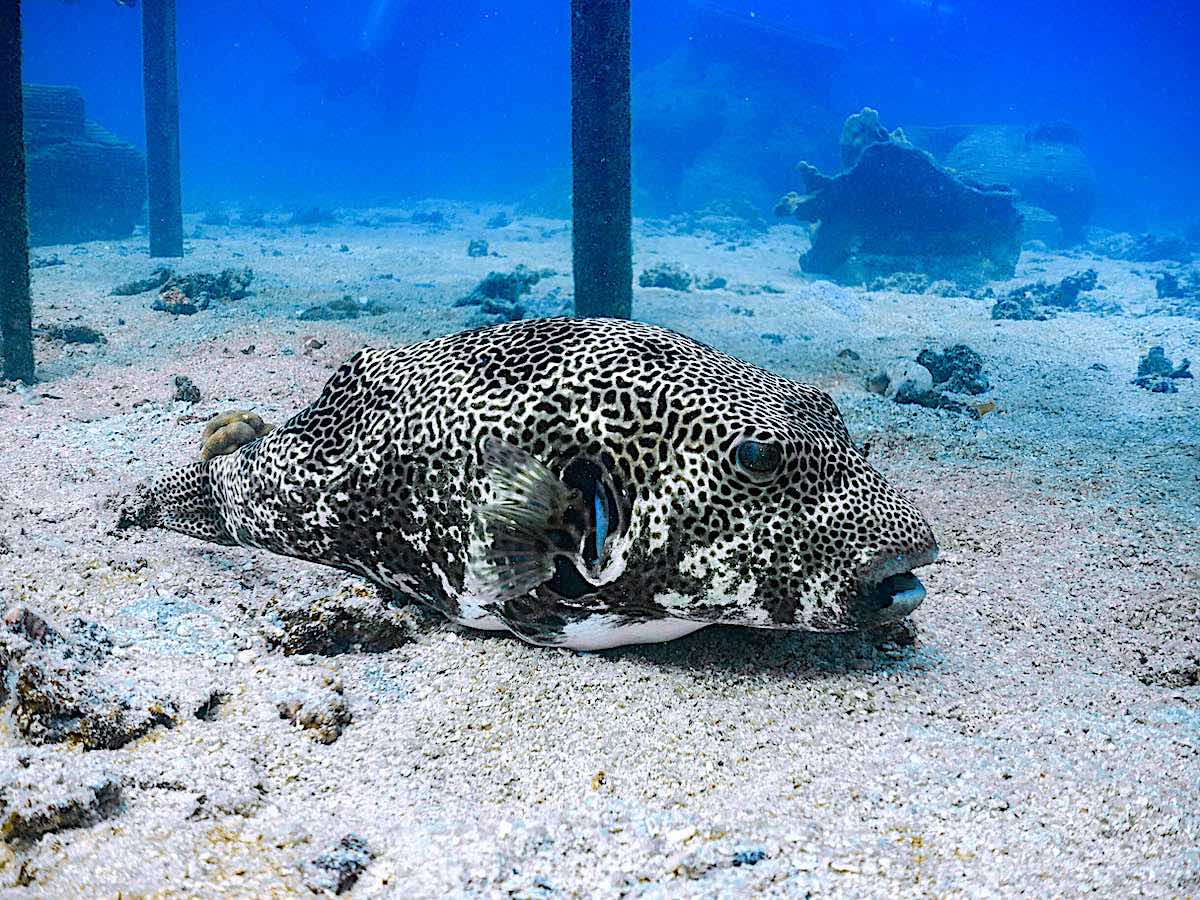
Marine Conservation Internships
For both Marine Conservation Internships booked together, students can save 3,000 baht.
Master Conservationist & Scientific Diver Internships combined in advance – 75,000 baht. (Contact us)
For students who are limited on time, we offer our popular and intensive 7-day Core Conservationist Marine Conservation Internship.
BOOK NOW 39,000 THB
Frequently Asked Questions
What is the Scientific Diver Marine Conservation internship in Thailand?
Our Scientific Diver Marine Conservation internship in the most popular intermediate level marine science-based Internship program available on Koh Tao.
This program is designed for students that have successfully completed the foundational level Marine Conservationist Internship and wish to further explore the Coral Reef Ecosystem in the waters around Koh Tao, gaining additional skills, knowledge and field experience.
Building on from the Marine Conservationist Internship, the Scientific Diver Marine Conservation internship is scheduled over 14 days.
This marine conservation internship explores Coral Taxonomy in depth, introduces you to Coral Diseases, Coral Predation and Macro Algae and the effect this has on coral reef ecosystems.
You will also learn about Artificial Reef structures, and we will teach you how to build and deploy structures at one of our DMCR authorised artificial dive sites.
Furthering your knowledge in Coral restoration, you will have the opportunity to learn the different techniques of coral transplanting we use on our artificial reefs on Koh Tao.
We will also look at more key indicator species such as Nudibranch, Seahorses and Giant Clams, why they are so important for the balance of the ecosystem and how we survey them.
The Scientific Diver consists of 14 modules and includes classroom presentations, workshops and Open Water training dives.
As with the Master Conservationist, there is an e-learning section, quizzes and exams associated with each module, which need to be completed. There are also performance requirements that candidates must meet during their Open Water training dives.
During the Internship you will work towards the prestigious Advanced Ecological Monitoring program certification collecting more advanced data to be used for further analysis.
The modules included in the Scientific Diver Internship are:
- Nudibranch & Sea Slug Ecology and Identification
- Seahorse Ecology
- Coral Taxonomy Levels 2 & 3
- Coral Disease Identification
- Macro Algae Identification
- Coral Predation
- Ecological Monitoring Program
- Giant Clam Nurseries
- Coral Transplantation Techniques
- Coral Gardening & Maintenance
- Mangroves Reforestation
- Artificial Structure & deployment
- The Plight of Sharks
- Introduction to Mangroves
What is the cost of the Scientific Diver Marine Conservation internship on Koh Tao?
Our intermediate level Scientific Diver Marine Conservation Internship is priced at 39,000 THB and is scheduled over a 14-day period. If you book this together with the foundational level Master Conservationist Internship the price is 75,000 THB.
This excellent intermediate level Marine Science based internship program, is designed to follow straight on from the Master Conservationist Internship.
The marine conservation internship follows a similar structured module-based system, which includes introductory self-study e-learning sections, and Instructor led classroom presentations, land and in-water workshops and Open Water training dives.
There are 17 training dives includes within the Scientific Diver Marine Conservation Internship and these are scheduled at a variety of dive sites around Koh Tao, including our own DMCR approved artificial dive sites.
There is also an extended snorkeling training session at Shark Bay, where we aim to observe Black Tip Reef Sharks in their natural environment.
How long does the Scientific Diver Marine Conservation internship last for?
Our Scientific Diver Marine Conservation Internship is an excellent Intermediate level Marine Science Internship program that lasts for 14 days.
The program consists of 14 modules, 17 training dives including a coral transplant and night dive and an extended snorkelling training session with Black Tip Sharks.
Building on what you have learned in the foundational Master Conservationist internship program, our Scientific Diver marine conservation internship follows the same modular design, providing you with a structured learning experience and allowing you to further your knowledge and skills in specific areas of marine science related to the coral reef ecosystem around Koh Tao.
The modules consist of e-learning components, knowledge development presentations led by your Conservation Instructor, land and in-water workshops and Open Water training dives.
Upon successful completion of every module, you will be certified as a Scientific Diver, which is one of the important prerequisites for individuals who wish to become a Research Assistant.
What is the minimum age for Scientific Diver Marine Conservation Internship?
The minimum age to enroll on the Scientific Diver Marine Conservation Internship is 12 years of age.
Candidates that wish to enrol should have an enthusiastic interest in marine science, the marine environment and conservation. You must be able to understand the scientific theory that is a major part of the Internship.
Our Scientific Diver Internship is a structured modular marine science based educational program, offering individuals that have already completed the foundational level Marine Conservationist the opportunity to further develop their knowledge on reef ecology and the coral reef ecosystem.
Do you get a certificate for the Scientific Diver Marine Conservation internship in Thailand?
Candidates that meet all performance requirements of the Scientific Diver Marine Conservation Internship, receive a certificate of completion documenting each module of the program.
Our Scientific Diver Internship includes 7 (seven) additional Conservation Diver certifications related to specific modules of the program.
